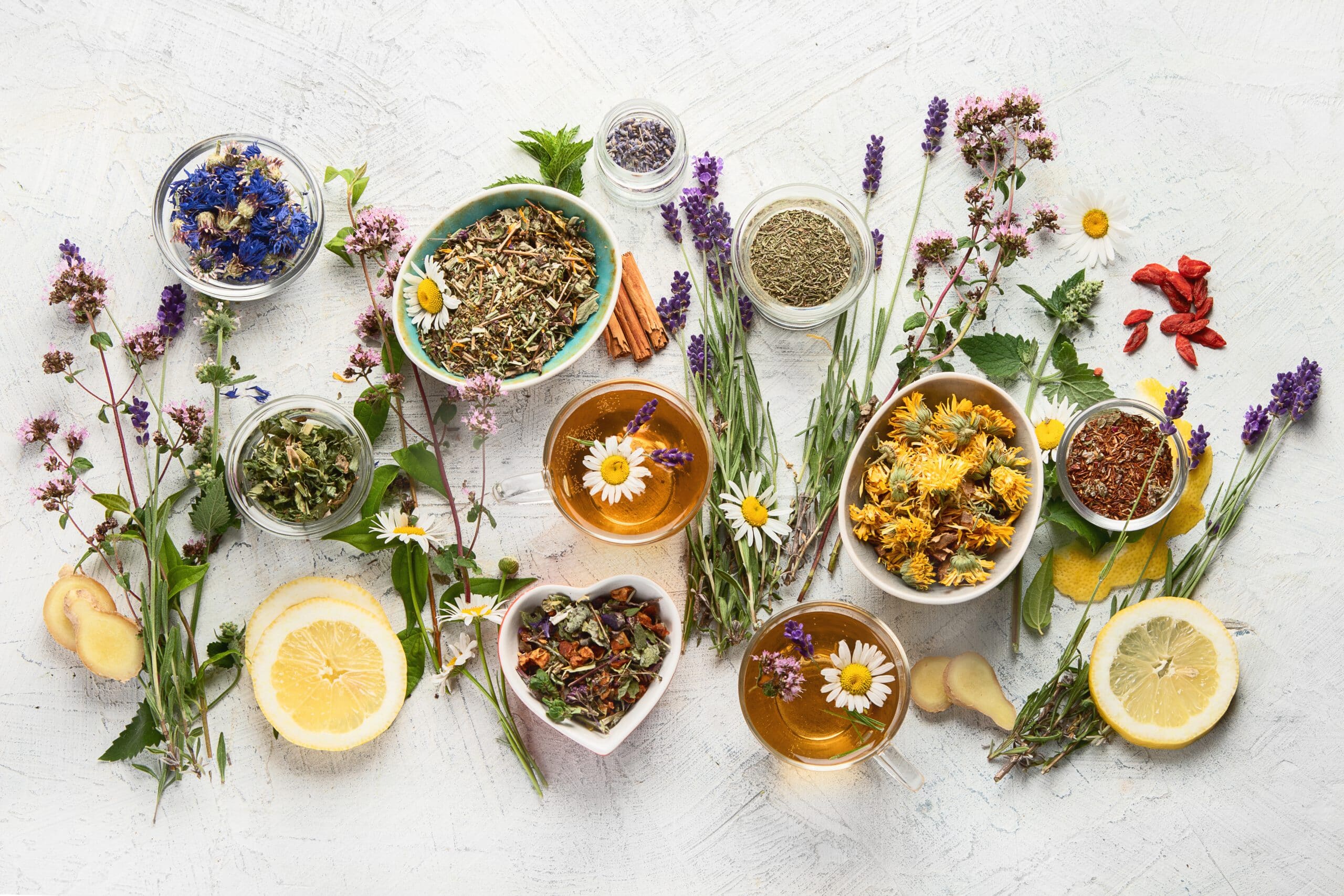If you're the kind of person who enjoys snuggling up in bed after a long day with a hot beverage, you might be on the hunt for the best warm bedtime drink to help you drift off. Teas are known for their ability to help shift your mood, with different teas being best for different times of day. We've uncovered the best teas to drink before bed to enhance your night's sleep, from reducing inflammation to improving your mood and preventing nighttime stress.
1. Lavender Tea - Best for making you instantly sleepy
Made by brewing the buds of the lavender plant in hot water, lavender tea is a caffeine-free, sleep inducing warm night time beverage.
Studies have shown that especially for older adults, lavender tea can effectively reduce symptoms of anxiety and depression, which directly relate to insomnia.
By stimulating brain activity and influencing impulse transmissions between brain cells, lavender has been found to produce a calming effect on your nervous system.
Improving your mood and calming your mind, lavender tea can help you unwind after a stressful day, helping you drift off to sleep when ready.
Even the smell of lavender tea can instantly make you feel sleepy, as it contains the chemicals linalyl acetate and linalool. These chemicals have a sedative effect that works quickly.
Main benefits of lavender tea:
- Calms your nervous system by influencing brain activity
- Sleep inducing effects
- Reduces feelings of anxiety and depression, which cause insomnia
- Promotes relaxation and enhances sleep quality
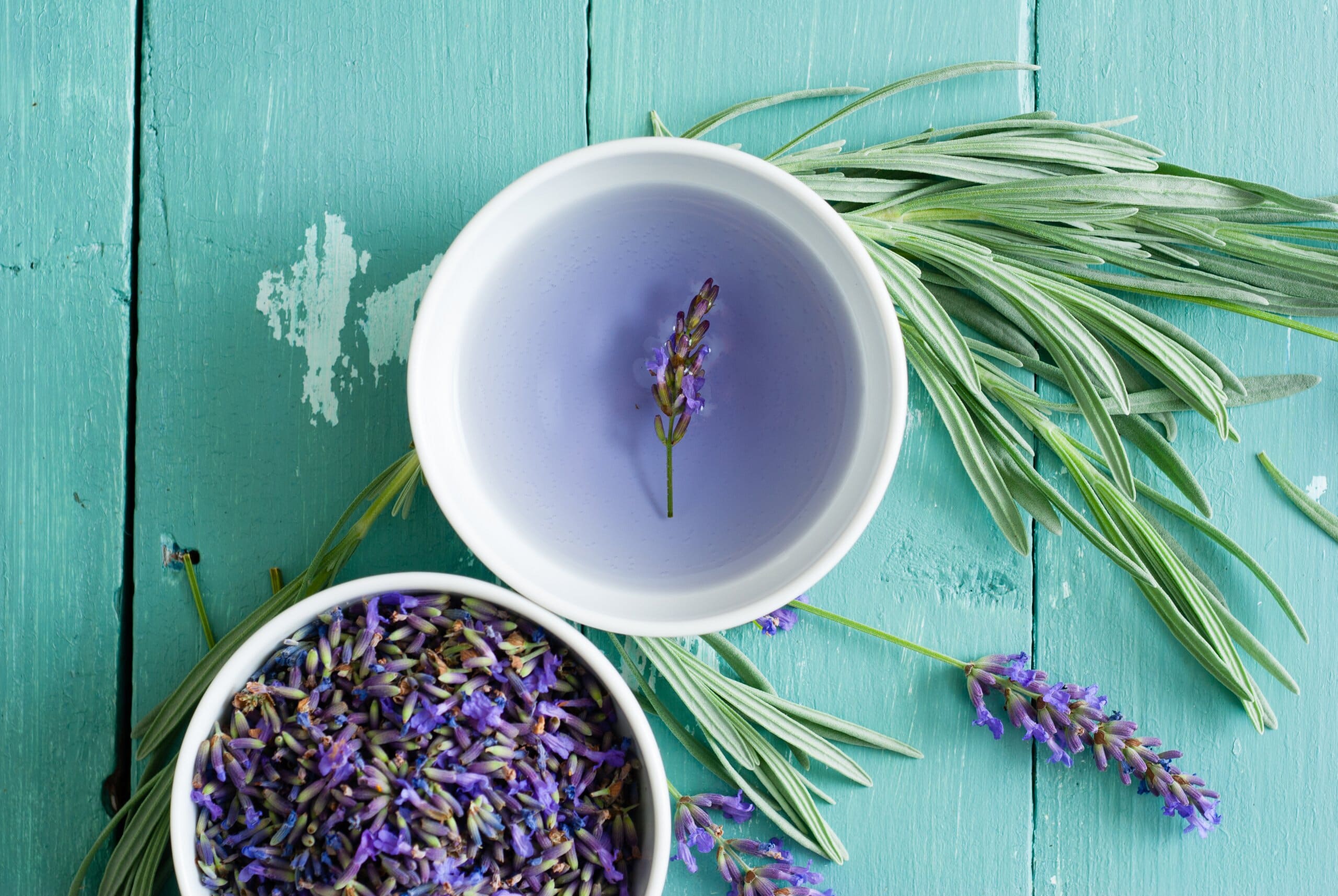
2. Chamomile Tea - Best for reducing pain and inflammation
With an aromatic earth-floral flavour, chamomile tea is well-known for its calming effects. With medicinal relaxing properties, chamomile tea reduces feelings of stress and anxiety.
Within the tea, a flavonoid (natural substance) called apigenin creates a mild sedative effect, by binding to receptors in the brain. These receptors are responsible for making you feel sleepy and reducing anxiety, so chamomile tea enhances this process.
Chamomile also has anti-inflammatory properties, helping to minimise the pain felt from arthritis, stomach cramps or other painful conditions that might be keeping you up at night.
Main benefits of chamomile tea:
- Binds to your brain receptors, enhancing feelings of sleepiness
- Reduces stress and anxiety
- Anti-inflammatory properties minimise pain
- Helps you enjoy a deeper, better quality sleep
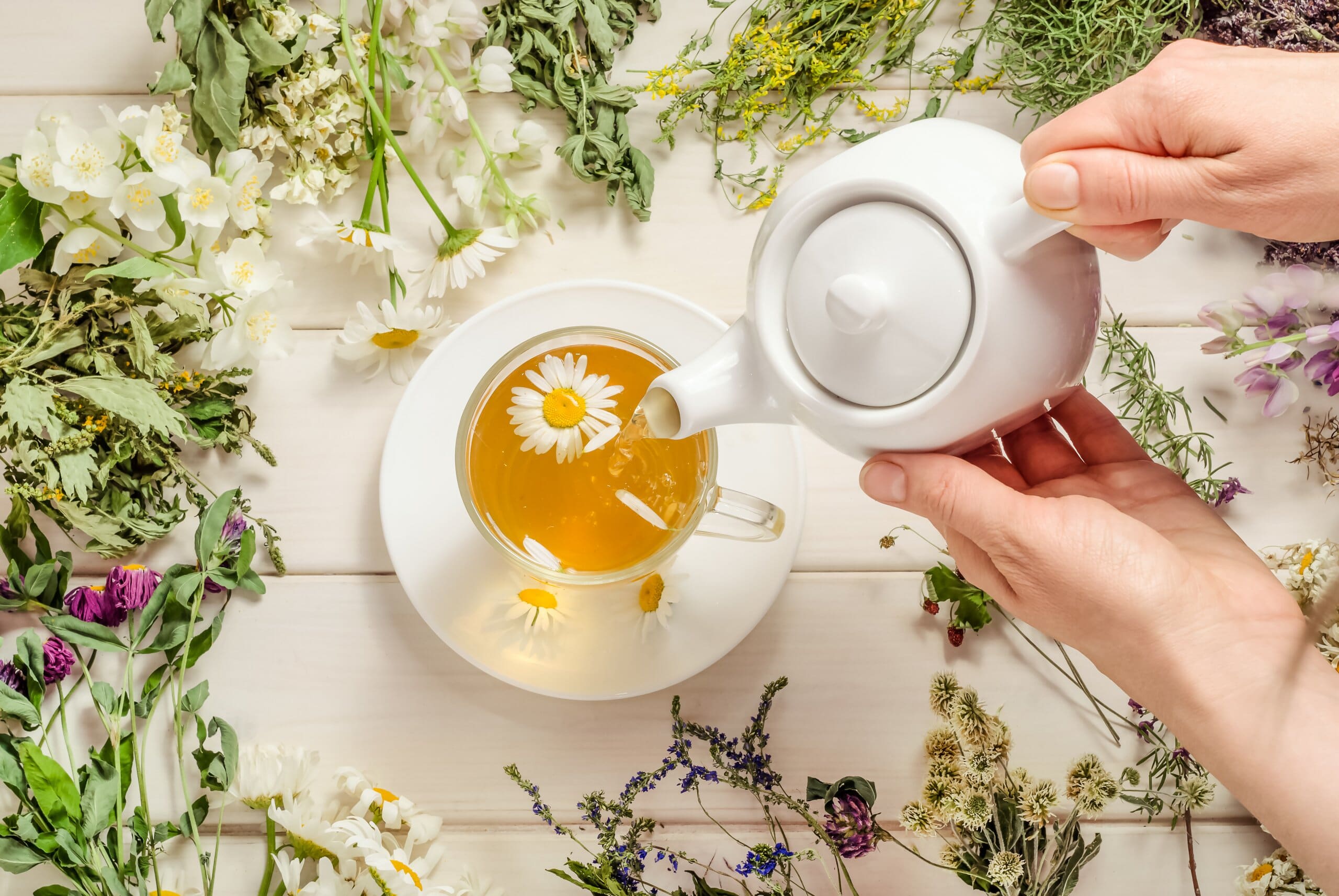
3. Valerian Tea - Best for helping you relax
GABA (gamma aminobutyric acid) is a chemical in the brain that regulates your nerve cells and promotes feelings of calmness. Valerian is thought to increase the levels of GABA in your brain, reducing anxiety and helping you relax before bed.
Made from the root of the valerian plant, this tea can have an unpleasant smell, so is often mixed with other teas such as lavender or chamomile. However, valerian includes sleep-inducing antioxidants, so can be used before bedtime to help you unwind.
Valerian can also help to ease menstrual pain and PMS symptoms. Research has found that valerian can reduce the emotional, behavioural and physical symptoms of premenstrual syndrome.
Main benefits of valerian tea:
- Increases levels of GABA in your brain, reducing anxiety
- Regulates your nerve cells to promote calmness
- Includes sleep-enhancing antioxidants, such as hesperidin and linarin
- Can also help ease menstrual pain and PMS symptoms.
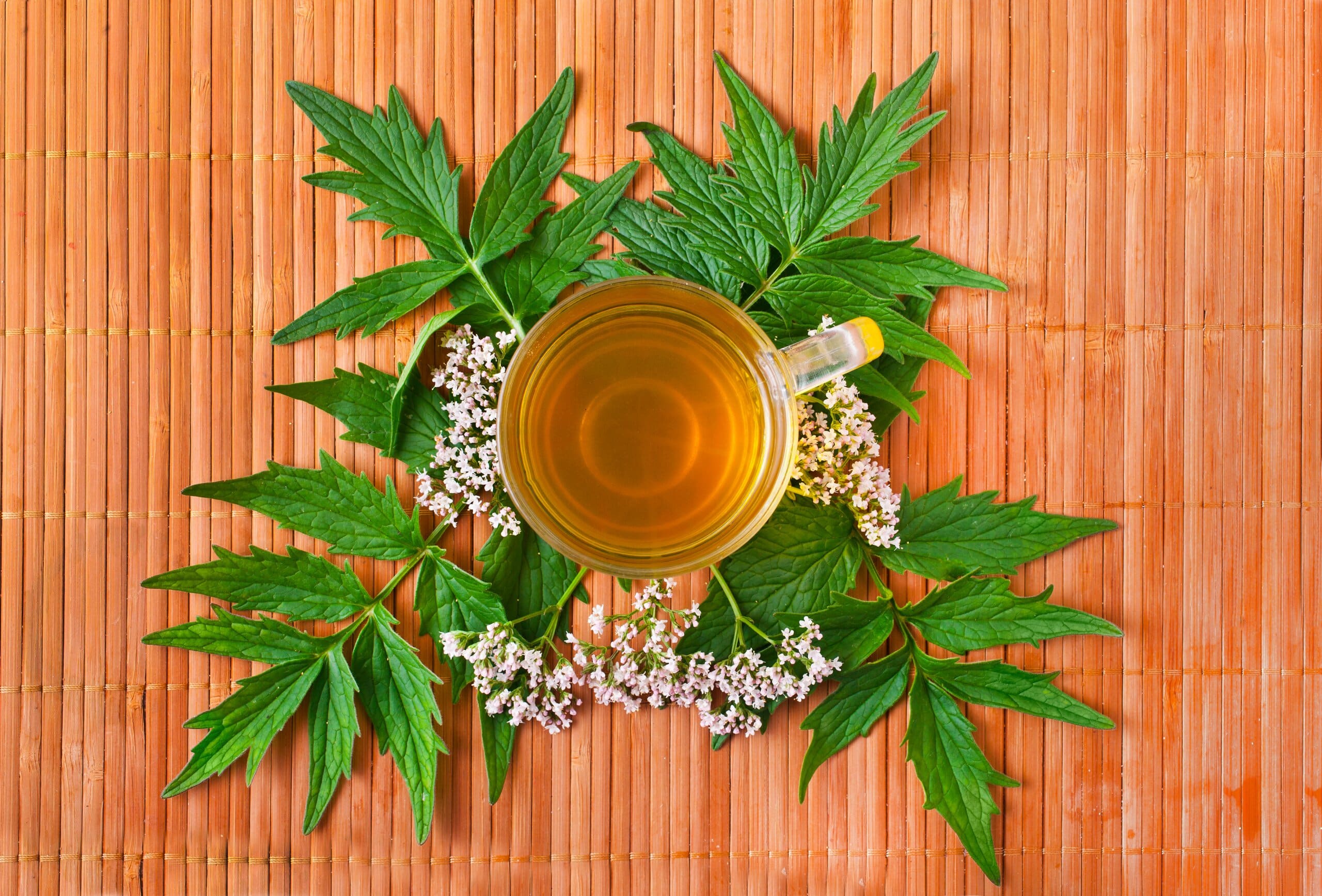
4. Rooibos Tea - Best for reducing heart problems
Also known as red bush tea, rooibos tea is a herbal tea with a brown-red colour. While it doesn’t have any vitamin or nutritional properties, it is packed full of powerful antioxidants that aid both your health and sleep quality.
Research has shown that rooibos tea can improve cholesterol levels, lowering the risk of heart disease and stroke. High cholesterol can have a negative impact on your sleep, potentially causing sleep apnea.
Caffeine-free, rooibos tea also contains magnesium, which aids your parasympathetic nervous system - the system responsible for calming and relaxing you.
Main benefits of Rooibos tea:
- Full of powerful antioxidants
- Can help lower cholesterol levels, reducing heart problems
- Contains magnesium which helps your body relax you
- Naturally caffeine-free
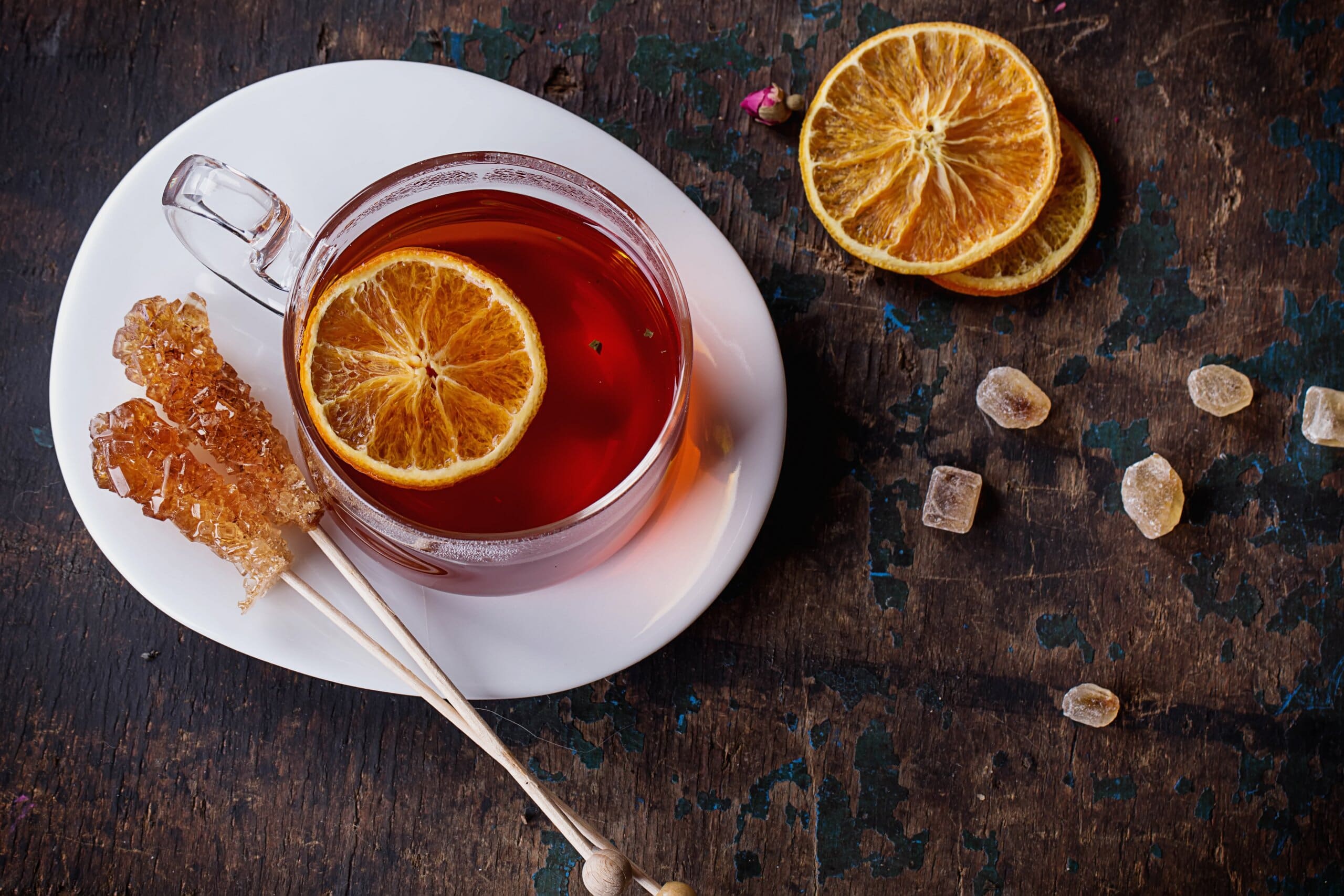
5. Peppermint Tea - Best for easing colds and headaches
With muscle relaxing properties, peppermint tea is an ideal choice of drink before bed. Naturally caffeine-free, it can help you relax and unwind before bed.
The menthol in peppermint tea can increase blood flow and provides a cooling sensation. This acts as a pain reliever, naturally minimising tension headaches and migraines. The aroma of peppermint tea can ease any headaches you experience that might prevent you from getting a good night’s sleep.
Peppermint tea can also help to unblock clogged sinuses, reducing symptoms of the common cold and allergies. It can be hard to sleep with a runny nose and irritating cough, but a warm mug of peppermint tea can help to ease this congestion.
Main benefits of peppermint tea:
- Increases blood flow and provides a cooling sensation
- Natural pain reliever, easing headaches and migraines
- Unblocks congested sinuses, easing cold and allergy symptoms
- Muscle-relaxing properties
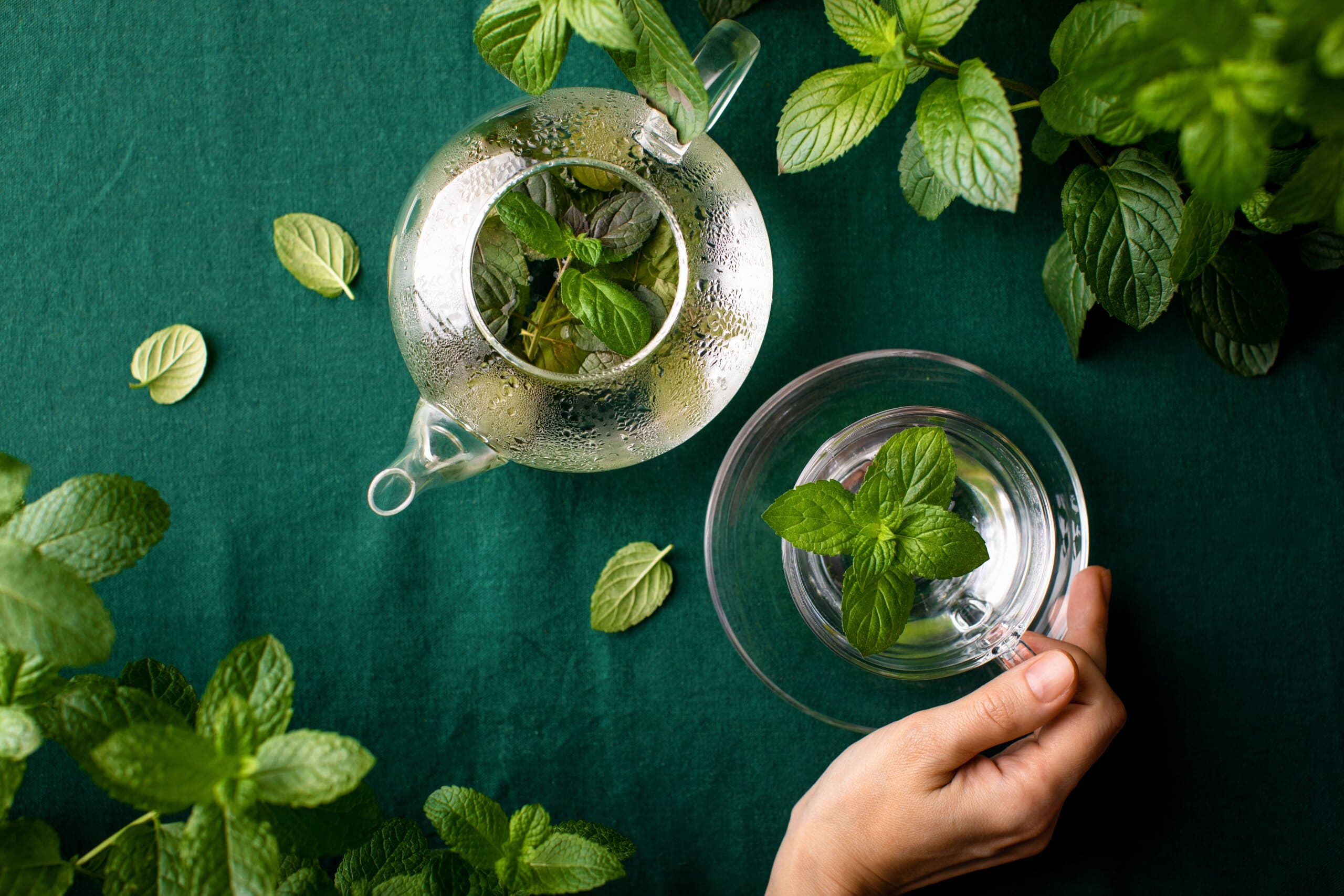
6. Lemon Balm Tea - Best for improving your mood
A citrus-scented herbal tea, lemon balm tea is caffeine-free with therapeutic properties.
Research has shown that lemon balm tea reduced anxiety manifestations, anxiety-induced symptoms and insomnia in 95% of the people studied.
Another study compared the effects of drinking lemon balm tea to taking antidepressants, and found that participants reported an improved quality of life after drinking lemon balm tea.
By reducing symptoms and feelings of depression, lemon balm tea can make it easier for you to regulate a healthy sleep routine.
Similarly to valerian tea, lemon balm tea increases the levels of GABA in your brain, which regulate your mood and reduces feelings of stress, anxiety or even overexcitement.
Main benefits of lemon balm tea:
- Caffeine-free with therapeutic properties
- Reduces symptoms of anxiety and insomnia
- Reduces feelings of depression
- Regulates your mood and relaxes your mind
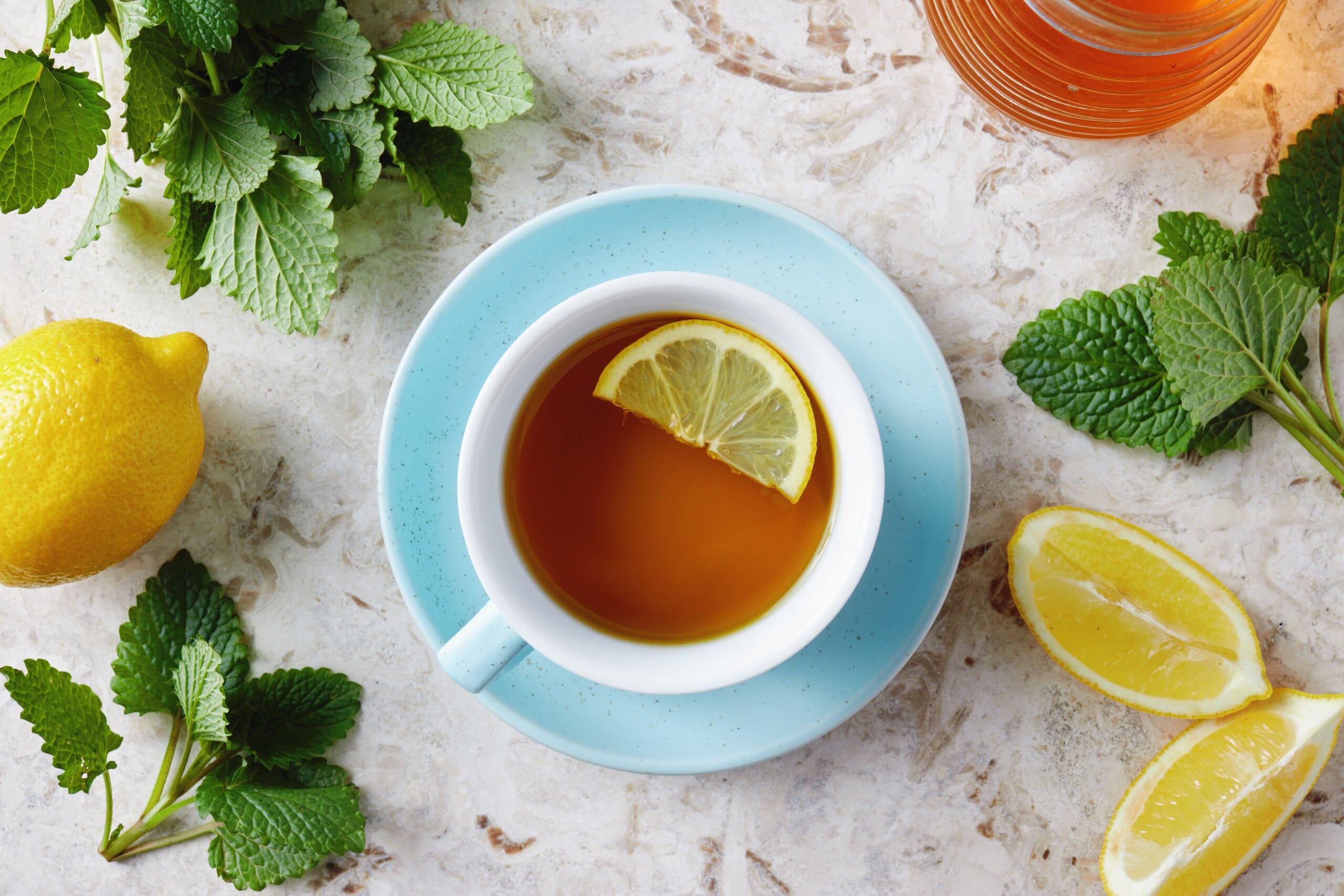
Herbal teas are an easy way of incorporating natural sleep aids into your nighttime routine. Available in most supermarkets or health food shops, these sleep teas can improve both how quickly you fall asleep as well as the quality of your sleep. For more tips and advice on getting a better night’s sleep, check out our other articles on our blog,
